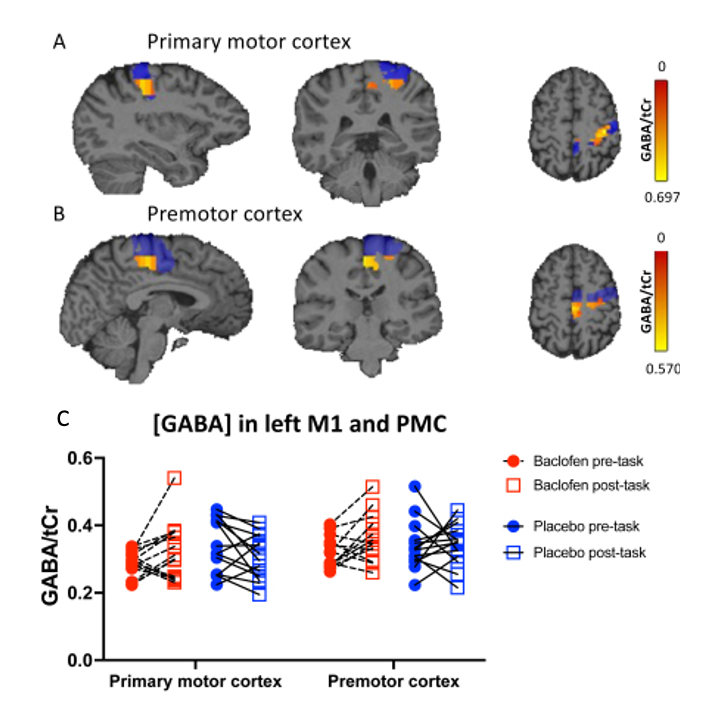Baclofen, a GABAb receptor agonist, impairs motor learning in healthy people and changes inhibitory dynamics in motor areas.
When people learn new movements, such as playing an instrument or a sport, levels of a brain chemical called GABA usually decrease in the brain area controlling movement. This study tested what happens when GABA activity is increased using the drug Baclofen. The results showed that higher GABA activity made it harder for participants to learn movement sequences and blocked the usual drop in GABA, showing that GABA directly affects motor learning.
Inhibition mediated by γ-aminobutyric acid (GABA) is implicated in motor plasticity and learning, with [GABA] in the motor cortex decreasing during motor learning. However, the causal relationship between [GABA] and learning has yet to be determined. Here, we conducted a within-subject, double-blind, placebo-controlled, crossover study to investigate the effect of increased GABAergic inhibition via GABA-receptor agonist baclofen on motor learning and Magnetic Resonance Spectroscopic Imaging (MRSI) metrics. Increasing GABA-mediated inhibition with baclofen did not change response times, but significantly impaired motor sequence learning. In parallel, we demonstrated a blunting of the expected decrease in [GABA] during motor learning. These results highlight a causal role for GABAergic inhibition in motor learning and may have clinical implications: baclofen is commonly used to treat post brain-injury spasticity, but may impair motor learning during rehabilitation.

2025. Imaging Neurosci (Camb), 3.
